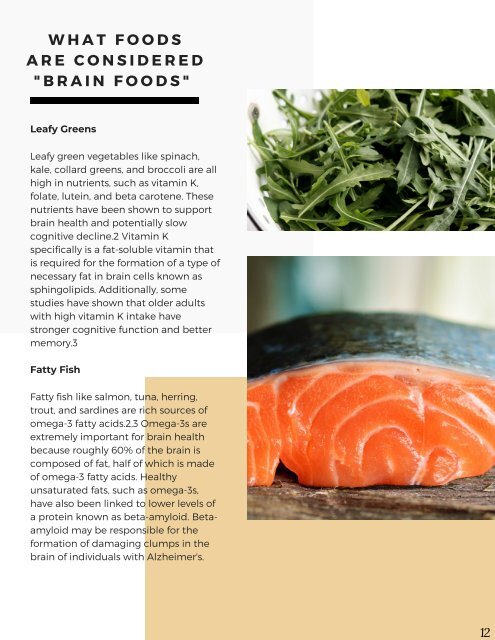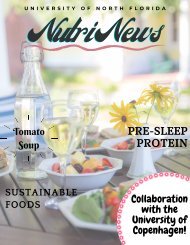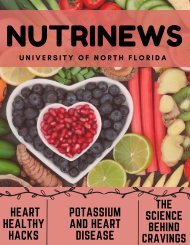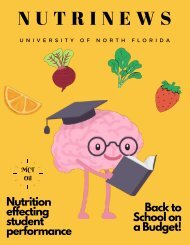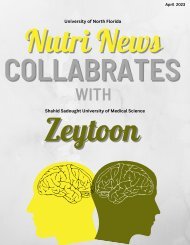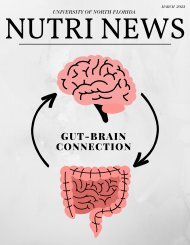Nutri News September 2022
The theme for September is Back to School!!! Articles include nutrigenetics and if a nutrient dense breakfast improves school performance. This issue also includes an easy lunch box recipe and shopping in season with figs. This month’s student spotlight is on our very own Georgina Brace and an interview with Professor Altice.
The theme for September is Back to School!!! Articles include nutrigenetics and if a nutrient dense breakfast improves school performance. This issue also includes an easy lunch box recipe and shopping in season with figs. This month’s student spotlight is on our very own Georgina Brace and an interview with Professor Altice.
Create successful ePaper yourself
Turn your PDF publications into a flip-book with our unique Google optimized e-Paper software.
12<br />
W H A T F O O D S<br />
A R E C O N S I D E R E D<br />
" B R A I N F O O D S "<br />
Leafy Greens<br />
Leafy green vegetables like spinach,<br />
kale, collard greens, and broccoli are all<br />
high in nutrients, such as vitamin K,<br />
folate, lutein, and beta carotene. These<br />
nutrients have been shown to support<br />
brain health and potentially slow<br />
cognitive decline.2 Vitamin K<br />
specifically is a fat-soluble vitamin that<br />
is required for the formation of a type of<br />
necessary fat in brain cells known as<br />
sphingolipids. Additionally, some<br />
studies have shown that older adults<br />
with high vitamin K intake have<br />
stronger cognitive function and better<br />
memory.3<br />
Fatty Fish<br />
Fatty fish like salmon, tuna, herring,<br />
trout, and sardines are rich sources of<br />
omega-3 fatty acids.2,3 Omega-3s are<br />
extremely important for brain health<br />
because roughly 60% of the brain is<br />
composed of fat, half of which is made<br />
of omega-3 fatty acids. Healthy<br />
unsaturated fats, such as omega-3s,<br />
have also been linked to lower levels of<br />
a protein known as beta-amyloid. Betaamyloid<br />
may be responsible for the<br />
formation of damaging clumps in the<br />
brain of individuals with Alzheimer's.


